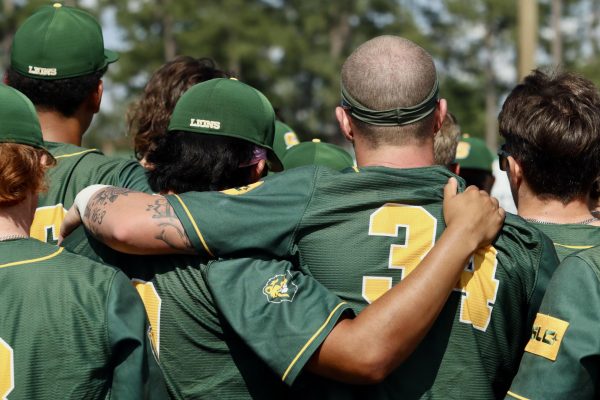What it takes to be a tutor
The Center for Student Excellence Tutoring Center is holding Tutors Appreciation Week from Oct. 26-30 to celebrate Tinsley Hall’s tutors and Supplemental Instruction Leaders.
SI Leaders and tutors are employed through the CSE’s Tutoring Center, and most SI Leaders begin as tutors. These tutors and SI Leaders work for the university all week to help students with subjects such as math, computer science, physics and chemistry.
However, SI Leaders are not the same as tutors.
SI Leaders are students who lead a study session amongst their peers who are all taking a specific course. The students who are having difficulties in that class can pick a day and time where they can create a session and go over topics together to get a better understanding of them.
“In order to be an SI Leader, you must meet certain requirements,” said Marie Bernard, the learning assistance coordinator who oversees the Tutoring Center.
SI Leaders must act as a voice for students in that specific course by going to that class and communicating with the professor about the weak spots in the course for students. They then plan out sessions that promote participation among the students who attend.
“They had to make an A or B in the targeted class that they will facilitate,” stated Bernard. “They must maintain at least a 3.0.”
They are also encouraged to go to the targeted class like a normal student would and interact with their cohorts.
Bernard stated that SI sessions are a great way for students to review content, learn new study strategies and collaborate with classmates.
The sessions sometimes take place in Tinsley Hall and also in the Computer Science and Technology Building.
Students who are interested in becoming an SI Leader or a tutor can visit the Tutoring Center website.
“Tutors must be patient and compassionate,” said Bernard. “Tutors must also know how to use questioning techniques to guide their clients to a better understanding of the concept that they are covering.”
Sarah Kaltenbacher, a senior social work major, explained what the most difficult part about tutoring is for her.
“I find the most difficult part of the job is when you see the clients succeeding and understanding the concepts in the sessions, but they do not do well on the tests due to test anxiety or time restrictions,” said Kaltenbacher.
Kaltenbacher also explained the difference between a tutor and an SI’s schedule.
“Tutors typically only hold weekly scheduled sessions, or they will tutor during our drop-in sessions at night,” explained Kaltenbacher. “SI leaders must attend the class they are an SI leader for, meet with the professor of the class and hold two weekly sessions for the students of the class.”
Students who are interested in being a tutor must attend a two-day training that addresses many facets of being an effective tutor, a mid-semester training and complete training modules.
Tutors are observed by graduate assistants and the Tutoring Center Coordinator to ensure they are utilizing effective tutoring methods.
Most SI Leaders were former tutors, so they have experience. However, they still must attend a two-day training as well as on-going training throughout the semester.
“Both tutors and SI Leaders are trained in facilitation techniques, effective questioning strategies, metacognition, collaboration techniques, brain based learning strategies and study skills,” explained Bernard.
The center is always looking for academically-inclined students to become tutors and plans to shed light on tutoring to encourage all students to seek assistance in the areas in which tutors and SI’s specialize.
Your donation will support The Lion's Roar student journalists at Southeastern Louisiana University.
In addition, your contribution will allow us to cover our annual website hosting costs.
No gift is too small.

Trinity Brown is a communication major with a concentration in electronic media and a Baton Rouge native. She is very active on campus as an SGA senator,...




